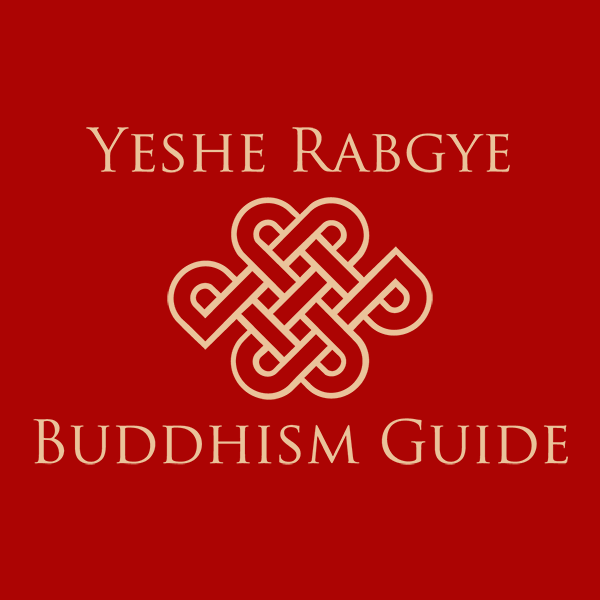Don’t Do That!
We are usually told about things that will benefit us but Gampopa, a Tibetan Buddhist teacher from the Kagyu school of Buddhism, taught ten things that are of no benefit to us.
- No matter how much respect and honour are payed to your illusory body, it is certain that it is impermanent and will perish. Hence, such things are of no benefit.
It doesn’t matter if people show you lots of respect or shower you with honours, your body is impermanent and at the time of death that respect and honour will count for nothing. So, don’t let your ego and pride lead you down a wrong path. The kind and respectful things people say to you are just their perspective, so don’t believe the hype, because it is of no benefit to you.
- No matter how much greed and stinginess we feel towards wealth and possessions, we will leave naked and empty-handed once we cross the threshold of death. Thus, such things are of no benefit.
A life spent accumulating vast amounts of wealth is going to be of no benefit at the time of death. You may have lots of money in the bank or in offshore accounts, but when you die that money will instantly belong to someone else. Surrounding yourself with lots of possessions you don’t really need is only going to clutter your life and mind. Instead, live a simple, contented life. So, don’t waste this life hording money or possessions, because neither are going to be of benefit to you when you die.
- No matter how much effort we put into building nice homes and mansions, we cross the threshold of death alone with our corpse being taken out the door. Hence, such things are of no benefit.
Spending all of your time, money and effort on building a big house is not going to benefit you when you die. You will not be able to take it with you. So, build a simple house that suits your needs and not your ego. You may like showing your beautiful, big home to others, but once you die the home is going to belong to someone else. So, there is no benefit of wasting your time and money on a luxury home.

- No matter how many gifts you lovingly bestow upon your children and grand-children, there’s not even an instant of benefit at the time of death. Thus, such things are of no benefit.
It is always nice to give gifts to our children and grand-children but spoiling them with lavish gifts is of no benefit to them or you. You are not helping them by being over generous. You are just feeding their egos. Nobody is going to benefit from such acts at the time of death.
- Since all of your children and grandchildren are impermanent, even if they keep the things given by you, it is certain they will be left behind. Thus, such things are of no benefit.
Even if you do spoil your children and grand-children, they will not be able to find any use for your gifts once they have died. This means your gifts are of no benefit.
- No matter how much love and care you have for friends and relatives, when you die you depart without anyone to accompany you. Hence, such things are of no benefit.
Getting attached to family and friends is not going to help you on your deathbed. In fact, they will disturb your mind be crying and telling you not to go, which is going to make your departure from this world extremely painful. When we go, we go alone, so don’t allow yourself to get attached to family and friends, because it is going to bring you more suffering at the time of death.
- No matter how much one strives in working for the nobility and their subjects for the aims of this life, one will cross the threshold of death having been completely cut off from their land. Hence, such things are of no benefit.
You may spend your life accumulating land and property. What benefit will they be once you die? They will become someone else’s land and property. This means you have wasted your time and money on things that have no lasting benefit.

- Even though one may have faithfully entered the gateway to dharma (Buddha’s teachings), if one does not practice according to the dharma, the dharma will become a cause for one to take rebirth in the lower realms. Thus, it would be without any benefit.
Instead of wasting this precious life on wealth, family, friends, property, etc., we should study the Buddha’s teachings. But if we only study them and don’t integrate them into our lives, what would be the benefit? It would mean you will have a lot of knowledge about Buddhism but would not have gained any wisdom.
- No matter how much dharma you know, having trained your mind in study and contemplation, without putting it into practice there is no way to take such things with you at the time of death. Hence, it would be without any benefit.
If you have had many teachings on Buddhism and you have trained your mind to study and meditate, but you don’t actually use the practice in your daily life, why bother? Buddhism is not a belief system or a religion, it is a way of life. So, we need to study, meditate and then take what we have learned and use it to help ourselves and others. There really isn’t any benefit in being able to recite Buddha’s teaching from memory if you are not going to put them into practice. The world doesn’t need intellectual Buddhists, it needs practicing Buddhists.
- No matter how long you stay in the presence of a spiritual master, if you yourself do not believe what they are teaching, you won’t receive any of their qualities. Thus, it would be without any benefit.
We cannot just surrender to a teacher and think, ‘Job done.’ The teacher is there to guide, mentor and support you. They are not there is magically pass on blessings or do the work for you. It is your path and only you can walk it. Of course, at first, we have to have faith in the teacher and teachings, but once we have experienced for ourselves what the Buddha taught, we no long need faith. Remember, the teacher is there for us to learn from and not lean on. So, find a teacher, study Buddha’s teachings, meditate and implement them into your life, that is the way to benefit from the Buddha dharma.
The point Gampopa is making here is that we are all heading towards death and so we should not waste our time on unimportant things. By that I mean, things that are not going to help us at the time of death. Studying and implementing the Buddha dharma is one thing that can help us at that point. This is because it trains our mind to be peaceful, stable, open and compassionate. So, when we are on our deathbed our mind will be calm and able to let go without any regrets. I can’t think of anything worse than being scared to take your last breath because you didn’t want to leave behind your big house, luxury car and impressive bank account.
You can read more blogs, listen to podcasts, watch videos and practice guided meditations on the Buddhism Guide app. Available from the Apple Store and Google Play.
If you would like to become a supporter of Buddhism Guides work, such as podcasts, blogs, videos and guided meditation practices, please visit here. You can support for as little as $2 a month.


